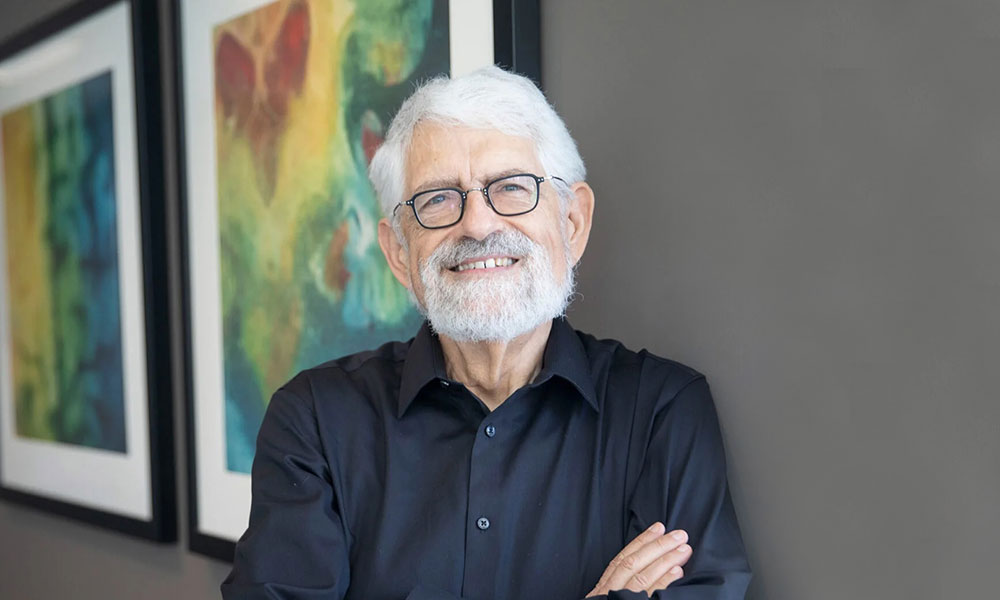MCB Professor-in-Residence and Professor of Physics Haim Sompolinsky has been awarded The Brain Prize, the world’s largest brain research prize, given to researchers who have had a ground-breaking impact on brain research. He shares the prize with Columbia University Professor Larry Abbott and Salk Institute Professor Terrence Sejnowski.
Throughout his career, Sompolinsky has been a pioneer in theoretical and computational neuroscience, developing innovative approaches grounded in the principles and methods of statistical physics, as well as the physics of dynamical and stochastic systems. His work has significantly advanced our understanding of neural circuit dynamics and functions.
Haim Sompolinsky comments: “This prestigious Brain Prize is a recognition of the crucial role of theoretical and computational neuroscience in advancing our understanding of the brain. I am proud to contribute to this field at Harvard through research and education, pushing the boundaries of knowledge and fostering interdisciplinary collaborations that pave the way for groundbreaking discoveries.”
“It is exciting to see Haim getting this richly deserved recognition for his pioneering work in the field of theoretical and computational neuroscience,” says Rachelle Gaudet, MCB Department Chair. “Over the past couple of decades, he has made a huge impact on the neuroscience community here at Harvard – bridging the fields of physics and biology, mentoring outstanding graduate students, postdoctoral fellows, and junior faculty, and stimulating countless new research directions and collaborations.”
Sompolinsky also serves as director of the Swartz Program in Theoretical Neuroscience within Harvard’s Center for Brain Science and as associate faculty at the Kempner Institute for the Study of Natural and Artificial Intelligence.
Venki Murthy, MCB faculty and Director of the Center for Brain Science adds, “Haim brought rigorous theoretical approaches from physics to understand various ways a network of neurons can interact, which has led to conceptual advances in many areas of neuroscience including learning, memory and navigation. While his research accomplishments may be the core legacy of his work, he has had a huge impact on science through his training and teaching – a tangible proof this aspect is the abundance of independent theoretical neuroscientists around the world that were trained or inspired by Haim! We are lucky to have him at Harvard.”



